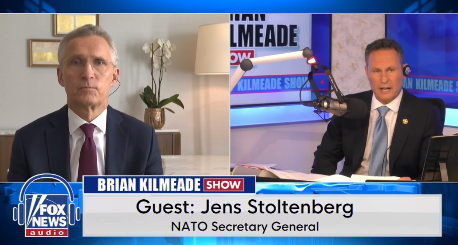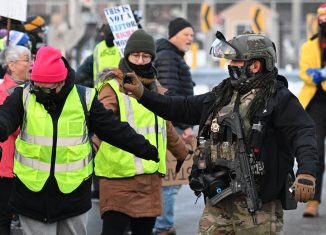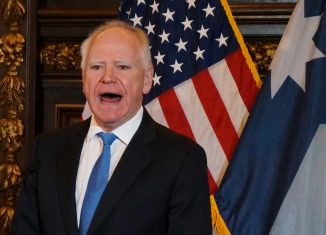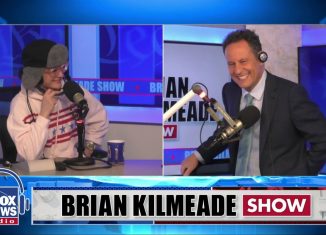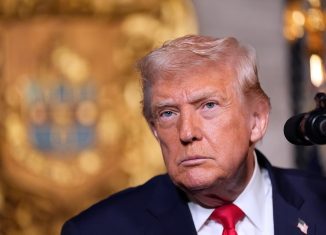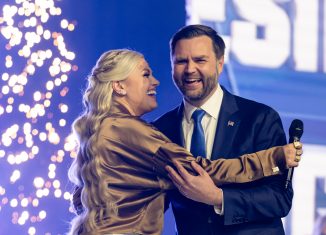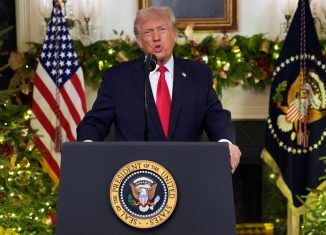Secretary General of NATO Jens Stoltenberg spoke to Brian Kilmeade about the NATO Summit in DC and NATO accusing China supplying Russia on its war on Ukraine. NATO is calling China “to cease all material and political support to Russia’s war effort”, which include any supplies that can be converted for war. Stoltenberg responded to China’s claim that they never provided lethal weapons to either side of the conflict, saying, “There’s no doubt that sign law, is the main enabler, of Russia’s war against Ukraine. It may be incorrect that they are not delivering lethal weapons, but that, delivering all the tools, all the equipment, that Russia needs to build, these lethal weapons that they provide, almost all the microelectronics, the microprocessors, the dual use equipment that, that, Russia uses to build missiles, bombs, aircraft to, attack, Ukraine.”
Listen here
Rough Transcript of the Full Interview:
Brian Kilmeade [00:00:00] And joining us now, a man who has been doing incredible
work behind the scenes and in front of the camera to make sure the world knows that
Russia has to be stopped. Secretary general of NATO, Stoltenberg joins us. Mr. Secretary,
welcome back.
JENS STOLTENBERG [00:00:14] Thanks so much for having me again. It’s good to be
back.
Brian Kilmeade [00:00:16] Congratulations on your award. The medal of freedom. What
was that like, getting that?
JENS STOLTENBERG [00:00:21] That was a great honor. And the big surprise for me,
this is a recognition of the work the whole alliance have done over the last year to ensure
that we protect the 1 billion people living in North America and Europe in the more
dangerous world, not least against the Russians, but also against solving the other
increasing and challenges that that China has posed in total security.
Brian Kilmeade [00:00:44] We all saw around the world what was happening in front of
the camera. Can you bring us behind the scenes, President Zelenskyy, desperate, get the
weapons he needs in a timely, timely fashion to keep his country alive without restrictions?
Word behind the scenes was the pushing President Biden to allow them to blow up these
weapons depots, the places where the Russians are attacking, even if it’s inside Russia.
Did you guys make any progress convincing him?
JENS STOLTENBERG [00:01:11] First of all, I think we need to realize that, of course,
Ukraine would like to have as much as possible, as soon as possible, with, no restrictions.
At the same time, they realize that, of course there are some limits, when it comes to how
much allies are able to, provide, at least in the short term. But what we have seen is
unprecedented support from, from European allies and, the United States, we had some
gaps, some delays this winter. Now we are all stepped up. And, allies have also reduced,
the, the, the restrictions, on the use of, weapons against, military targets, on the territory
of, Russia. That is also the case for United States. Some allies have no restrictions, at all.
So we are moving in the right direction, with more weapons and also open up for, use, to
use those, those weapons against, Russian targets.
Brian Kilmeade [00:02:11] Thanks to work for peace. Thanks to work from people like
you. The president went from no Himars to Himars, no patriots to patriots. After two years,
we’re finally ready to get them F-16s. Now, no attack arms to getting attack arms. Now to
don’t hit in Russian territory. Now you can hit in Russian territory, but let’s go and push the
Russians back from where they’re hitting Ukraine from. Do you believe you made any
progress? Do you think there’s going to be an announcement? Or is this something you
don’t announce that Ukraine just doesn’t.
JENS STOLTENBERG [00:02:44] So first of all, it’s not obvious that everything has to be
or should be announced. Good. Second, as I said, there are also allies who have delivered
weapons, including, for instance, cruise missiles, long, long range missiles, without any,
restrictions. So this has enabled the Ukrainians to, to strike, military targets on the territory
of Russia. We need to understand what this is. This is a war of aggression. Russia has
attacked a neighbor Ukraine. And Ukraine has, according to international law, the right for
self-defense and the right for self-defense includes also the right to hit legitimate military
targets on the territory of the aggressor, meaning Russia. So? So the Ukrainians are doing
that to a large extent now and then they did just a few months ago. And of course, this was
an issue also addressed at the NATO summit with all the allies present.
Brian Kilmeade [00:03:36] So yesterday you said, miss, Mr. Secretary, China has
become an enabler of Russia’s war against Ukraine. And China’s support increases the
threat, to, US Atlantic security. They answered back the Chinese mission did to the EU
and said we never provide lethal weapons to either party of the conflict. NATO should stop
hyping up the so-called China threat and provoking confrontation. So I’m going to give you
a chance to answer them.
JENS STOLTENBERG [00:04:07] There’s no doubt that China, is the main enabler, of
Russia’s war against Ukraine. It may be incorrect that they are not delivering lethal
weapons, but that, delivering all the tools, all the equipment, that Russia needs to build,
these lethal weapons that they provide, almost all the microelectronics, the
microprocessors, the dual use equipment that, that, Russia uses to build missiles, bombs,
aircraft to, attack, Ukraine. The, the, the important message from their dollars is that this is
the first time 32 allies so clearly to to own this, on Beijing, on China, being responsible for
enabling Russia to go to war of aggression, that’s their message to China and warning that
this will impact the interest if this continues.
Brian Kilmeade [00:05:04] Chinese Foreign Minister said NATO is threatening China’s
interest by extending its reach into Asia. He said the alliance should avoid messing up
Asia the way it messed up Europe.
JENS STOLTENBERG [00:05:16] Well, what you see is that sunlight is coming closer and
closer to us in the in Europe, exercising now as we speak with Belarus, a neighbor to
NATO allies in Europe, but also a neighbor to, to Ukraine. And Chinese soldiers are
exercising with Belarus and soldiers. They have signed that China has signed a, and its
security agreement with, with that, with their saw, understand how the partnership is
without limits. So what we see is that Moscow, Beijing, China, Russia are more and more
aligned. And this also demonstrates that what happens in Ukraine today may happen, in,
Asia and Taiwan, tomorrow. And there is a close link between European security and,
Asian security and security in and in the Asia Pacific. So therefore it is so important that
Putin doesn’t win in Ukraine, because that will not only embolden him to use military force,
would also embolden, XI and China to use military force. So this is a clear demonstration
of how other security’s interlinked.
Brian Kilmeade [00:06:21] But Mr.. Mr. Secretary, people look at this and say the
Russians have lost hundreds of thousands of men trying to take Ukraine, and they’ve been
frustrated, even though they’ve had, some success. They take in, I think, 17% of the
country. And we know there they this is unprovoked attack. They made up that Ukraine is
run by Nazis. It’s ludicrous. But they say there’s no way they’re looking to spread further.
Ukraine’s unique. What proof do you have that they’re looking beyond Ukraine?
JENS STOLTENBERG [00:06:50] Well, we have seen an aggressive pattern by Russia
over the last year. First they went into Georgia, then they annexed Crimea back in 2014.
Then after a few months, they went into eastern Donbas. And then they waited for some
years and then they launched a full scale invasion. So we have seen this aggressive
pattern. At the same time, we don’t see an imminent that militates against any NATO ally,
but that’s because they are NATO allies. So that’s because NATO has been successful in,
in preventing any armed attack against and in a dialog for 75 years by sending a very clear
message to Moscow that an attack on all that, that the second one will be an attack on all,
one for all and all one. So that’s the purpose of NATO is to do action to to fight the war, to
wage war. The purpose of NATO is to prevent war, is to preserve peace. And we have
done that successfully for 75 years by standing together and promise to protect each
other. This is good for Europe, but it’s also very good for United States. A strong NATO is
good for, not the states. U.S. is big. 25% of the world economy. But together with NATO
allies, we are 50% twice as big. 50% of the world economy. So Estonia makes also the
U.S safer and stronger.
Brian Kilmeade [00:08:09] If the war ends tomorrow, does Ukraine become is are they on
a fast track to become a member of NATO?
JENS STOLTENBERG [00:08:18] I’m not able to give you a specific timeline, but we made
a very strong statement at the summit that Ukraine will become an ally. We call it an
irreversible path towards membership, but in many ways more important than the
language we agreed or actually the actions we agreed to take. So action speaks louder
than words. We agreed to build up a big NATO command to ensure that Ukraine gets the
assistance training they need. We agreed a financial pledge for Ukraine to ensure that we
send a strong message of enduring support for Ukraine. And we did many other things to
provide more air defense, more, more ammunition to Ukraine. This is important because
the stronger our support and the longer term we’re ready to commit to, the sooner this war
will end, because this will end when President Putin realizes that he will not win on the
battlefield. It has to sit down and accept that Ukraine today, as a nation so strong long
term to support, is the way to end this war soon.
Brian Kilmeade [00:09:22] Here’s what President Biden said yesterday. Cut 15.
Joe Biden [00:09:29] I think how can I say this without sounding too self-serving? I’m not
having any. My European allies countries say, Joe, don’t run. When I hear them say is,
you’ve got to win.
Brian Kilmeade [00:09:47] Is that the sentiment among the other 30 members of NATO
that they should have Joe Biden win, not Donald Trump?
JENS STOLTENBERG [00:09:54] Well, NATO is the most successful alliance in history
because we have been able to stay out of domestic politics, to, remain a bipartisan issue
in the United States and across the Alliance. And therefore, I think it’s important that, we
continue to ensure that we stay out of domestic issues, that this is a domestic issue. It’s
not for NATO to have any opinion about who is going to be elected as next president, or
prime minister in an allied country.
Brian Kilmeade [00:10:27] Due to his alleged Trump successful in getting NATO
members to pay more.
JENS STOLTENBERG [00:10:32] Well, former President Trump had a very clear
message, that the European allies had to pay more. This has been a message from some
consecutive U.S. administrations, and this message has had an impact. Not many years
ago, only three allies spent, 2%, the NATO guideline, of GDP on defense. Now it’s 23
allies, and that’s a record high. More and more allies are spending significantly more than
2%. Actually, several allies are now spending more than the United States, on, defense
message as a share of GDP. So this is a huge shift. And this demonstrates that the
message, has had an impact. And European allies and Canada have stepped up.
Brian Kilmeade [00:11:22] Mr. Secretary, we’ve done a tremendous job. Everybody, really
salutes your work. You’ve done. What’s next?
JENS STOLTENBERG [00:11:29] I really don’t know. I was appointed the governor of the
Norwegian Central bank. I stepped down to, to to to extend the, to be able to, to continue
in NATO. So now I don’t know, but I will surely find something meaningful to do when I
return to Norway in October.
Brian Kilmeade [00:11:44] You got a lot of great years left. Mr. Secretary, Jen
Stoltenberg, thanks so much. Appreciate it.
JENS STOLTENBERG [00:11:51] So much for having me. It’s always a pleasure.


